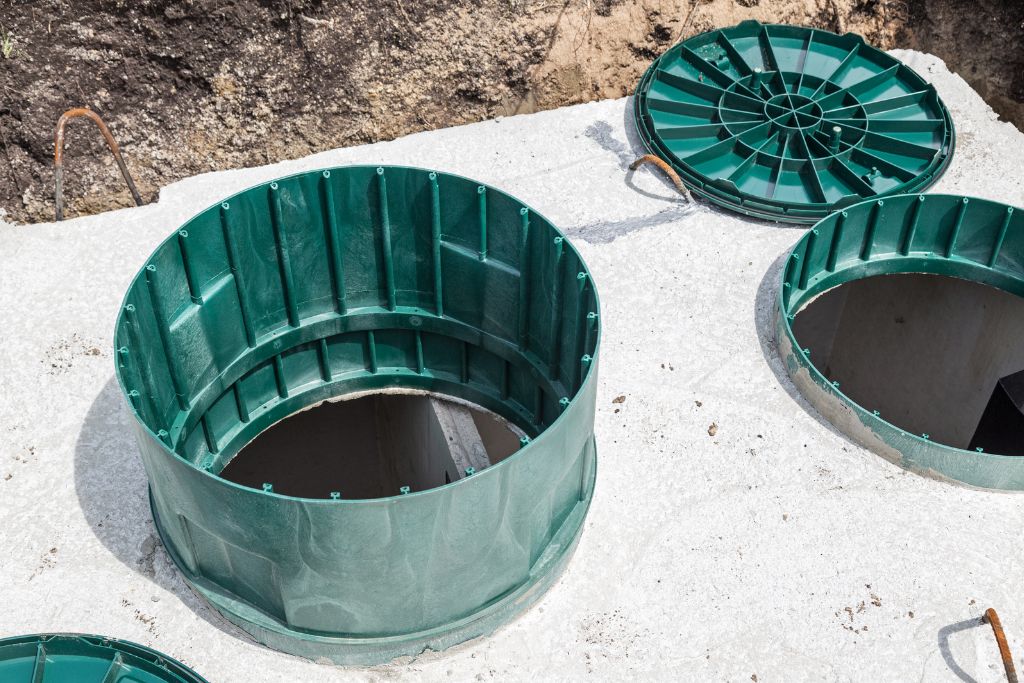Heavy rain can pose extreme pressure on your home systems, especially your septic, plumbing, and electrical configurations. Proper heavy rain preparedness is essential to prevent damage and ensure smooth operation. The aftermath of a storm often requires significant disaster recovery for home systems, including floodwater cleanup tips and system repairs.
With the recent bouts of rainfall in Burlington, Sedro Woolley, Mount Vernon, Camano Island, and nearby locations, it’s more important than ever to ensure your home’s essential systems—septic, plumbing, and electrical—are well-prepared. Excess moisture can put added strain on these systems, potentially leading to unexpected issues. You can consider septic system heavy rain safety measures, such as septic tank maintenance during rain and flood damage prevention. This guide covers similar practical strategies for system protection, maintenance tips, and recovery solutions to keep everything running smoothly, rain or shine.
What Makes Heavy Rain So Dangerous?
Heavy rain is not just characterized by downpours; it brings a variety of potential dangers to your home systems, such as flooding and soil saturation. According to the leading septic tank maintenance experts in Oak Harbor who specialize in emergency plumbing solutions, prolonged rainfall often overwhelms plumbing and septic systems, resulting in water backflows, flooding, and long-term soil erosion around the system’s components.
Septic tanks, especially, are vulnerable when the ground is saturated, as it can affect their ability to treat wastewater properly. The electrical system is also susceptible to damage, especially when wet areas may cause short circuits or damage to the wiring. Understanding the risks of heavy rain and preparing your home’s systems beforehand can help prevent emergency repairs and costly fixes in the future.
Preparing Your System Before Heavy Rain
1. Septic System Inspections
A septic system can easily become overwhelmed by heavy rain, but proper maintenance will help it handle excess water. Top septic tank maintenance contractors in Bellingham suggest inspecting your septic tank and its components, including the tank lid, risers, and distribution box. Ensure that your tank is properly sealed to prevent groundwater from entering and overwhelming the system. It’s also wise to inspect the drain field for any signs of pooling or improper drainage.
If you’re located in Burlington, Sedro Woolley, Mount Vernon, or nearby areas, consider scheduling a professional inspection with a trusted septic service provider like Johnny’s Septic Service. A pre-rain check can ensure your system is functioning at its best, reducing the chance of backups.
2. Securing Electrical Systems
Before the storm hits, ensure your electrical systems are secure. Examine outdoor wiring for any signs of wear or damage. According to the most credible rain damage prevention experts in Arlington, if your home is prone to flooding, consider investing in waterproofing measures for your electrical panel and outlets. Additionally, a backup power solution for storms, such as a generator, should be ready in case of a power outage. Avoid using electrical devices near wet areas during heavy rain to minimize the risk of electric shock or fire.
3. Plumbing Checks
Your plumbing system can also be significantly strained during a storm. Expert septic tank maintenance experts in Stanwood suggest checking for leaks or obstructions in your pipes, drains, and downspouts. Be sure your sump pump is in good working order to help manage excess water. Having a plumbing protection plan in place before the rain ensures that your home is prepared for any sudden downpours.
Managing Your System During Heavy Rain
1. Septic System Care
According to Burlington’s leading septic tank maintenance service experts specializing in electrical system safety during heavy rain, it’s important to use your septic system carefully during bad weather. Avoid running multiple loads of laundry or taking long showers, as these can flood the system. Minimize water use to prevent the septic tank from becoming overwhelmed.
In areas like Stanwood, Arlington, Camano Island, and nearby locations where storms can be particularly intense, it’s important to monitor the weather and plan your water usage accordingly.
2. Electrical System Safety
While the rain is coming down, stay safe by avoiding wet areas around electrical outlets and appliances. If you’ve installed a backup generator, make sure it’s in a dry, sheltered location. Follow the manufacturer’s guidelines for using your generator safely to avoid the risk of carbon monoxide poisoning or fire.
3. Emergency Plumbing Measures
According to the leading septic tank maintenance experts in Mount Vernon, flooding can cause various plumbing issues. If you experience water entry into your house, turn off your water supply to prevent further damage. Call a professional plumber immediately to offer emergency plumbing solutions in case of significant flooding. Johnny’s Septic Service also offers emergency drainage solutions if your septic system overflows during a storm.
Post-Rain System Recovery
1. Assessing Damage to Systems
Once the rain has subsided, it is crucial to assess any damage caused by the storm. According to the leading septic tank maintenance experts in Oak Harbor, you can start by checking your septic system for visible signs of problems, such as wet spots around the drain field or sewage backups. For plumbing, inspect pipes and drains for clogs or leaks caused by floodwater.
2. Floodwater Cleanup Tips
Floodwater can carry contaminants that can damage plumbing and septic systems. When cleaning up, make sure to sanitize surfaces and clear debris from around your septic tank and plumbing lines. Proper cleaning and disinfecting can help prevent long-term issues, such as mold or bacterial growth.
3. Professional Inspections
After heavy rain, it’s advisable to have a professional inspection to ensure all systems are functioning properly. A qualified technician can assess any potential damage to your septic system, plumbing, or electrical wiring. Johnny’s Septic Service can assist with septic system recovery in Bellingham, Stanwood, Sedro Woolley, or nearby areas, ensuring everything is back in working order and ready for the next weather event.
Long-Term Preparation for Heavy Rain
1. Regular Maintenance Schedules
Develop a long-term maintenance schedule for your septic and plumbing systems to prevent future issues. Regular inspections can ensure that your septic systems are well-maintained and ready for any heavy rain. Consider getting your septic tank pumped by a credible firm like Johnny’s Septic Service, Inc. every few years to ensure it operates at its best, and have a plumber inspect your pipes for wear and tear.
2. Backup Power Solutions
Backup power solutions are vital for homes that are prone to storms. Installing a generator or other power backup system can help you stay comfortable and safe even during power outages. Additionally, waterproofing critical areas of your home can prevent water damage to essential systems, including electrical wiring and plumbing.
3. Emergency Planning
Develop an emergency plan for future storm events. This involves planning for water use, preparing backup power, and what to do when a flood occurs. By planning ahead, you can prepare earlier and respond more effectively when a storm strikes.
Final Takeaway
Protecting your home systems from the effects of heavy rain requires preparation and ongoing maintenance. Proper heavy rain preparedness helps prevent costly repairs by ensuring your septic, plumbing, and electrical systems remain in top condition. From plumbing protection during heavy rain to septic system heavy rain safety, taking proactive steps minimizes risks like flooding, sewage backups, and electrical hazards.
If you need professional assistance, Johnny’s Septic Service, Inc. provides expert inspections and emergency services to safeguard your home. Whether you need professional septic tank maintenance in Burlington, Septic Sedro Woolley, Mount Vernon, Camano Island, Septic Oak Harbor, Arlington, Stanwood, Bellingham, or nearby locations, we are here to help. Don’t wait for storm damage—contact us today at 360-757-0550 for heavy rain system recovery and maintenance!


